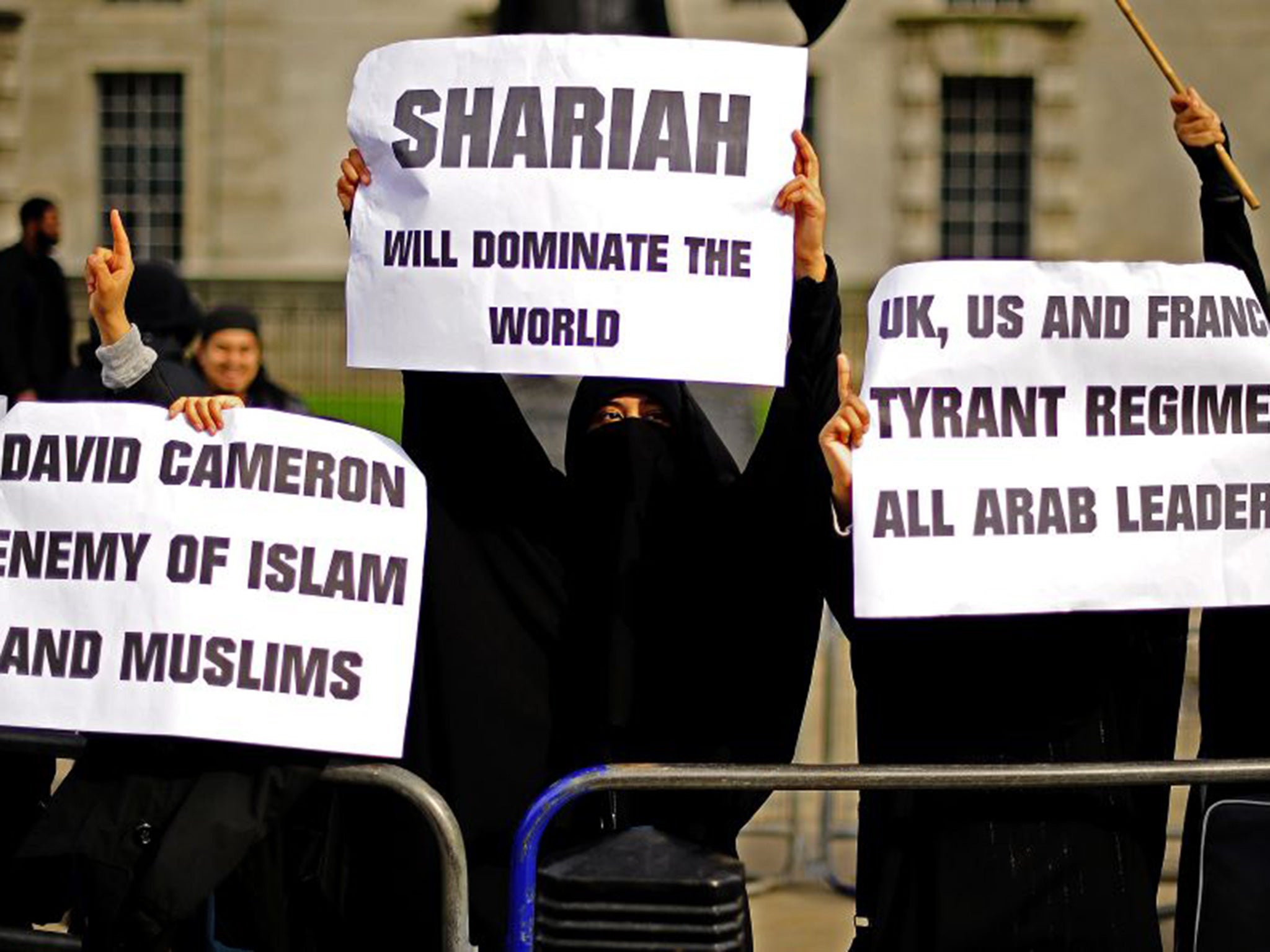Sharia courts sanction the subjugation of women – the Government can’t hide behind multiculturalism
Private legal systems cannot be tolerated if it means the subjugation of women in abusive and dangerous marriages

Can a healthy, harmonious multicultural society tolerate private legal systems? Not if that means the subjugation of women in abusive and indeed dangerous marriages, a form of imprisonment in all but name sanctioned by their local religious leaders.
As this newspaper reports again, the reality of sharia in some communities means precisely that. Sharia “judges” refuse to take the rights and complaints of women seriously, and, in some examples cited by researchers, fail to recognise the validity of a ruling of divorce made in a British court. Hence the subsequent oppression, which has too often shaded into violence and domestic slavery. Campaigners are calling on David Cameron to ban the use of religious arbitration in family matters.
Although the latest research focuses on just two Muslim communities, in east London and in Birmingham, it is reasonable to assume that similar injustices are being perpetrated under the auspices of other mosques and community councils. The problem marks one of the boundaries of tolerance and pluralism. It is also something, albeit in different forms, that has emerged in insular communities of other strict creeds and faiths. The Scientologists have been criticised for their alleged control of adherents. Sections of the Jewish community have also found their religious law and its enforcement criticised for its treatment of women and non-believers.
Such abuses can be perpetrated by any religion and by any kind of private organisation that takes upon itself the task of administering “discipline” and doling out justice. Cultural and political sensitivities should never prevent the authorities from taking action against those who have no interest in protecting human rights.
Of course, if a wayward employee is dismissed for gross misconduct, a Catholic is given 10 Hail Marys, or a political party changes its criteria for membership to the detriment of some, then a private system of justice is administered, but within statute and common law. No one can prevent religious groups from expelling members. If someone wishes to be a member of that group then they have to obey some of its rules and rituals. A religious divorce cannot, by definition, be granted by a civil body. The fault lies in the extreme reluctance of some churches to recognise the validity of a civil annulment, and their stubbornness in granting a religious divorce as a necessary counterpart. This is also true of some Christian churches.
Where does the remedy lie? One route is through persuasion and dialogue, both within religious communities and between them and the political authorities. In examples where the human rights of a woman, in particular, have been denied, the police and the civil courts should have the backing of all concerned to show that there are no areas out of bounds for British law and values, because it is those laws and those values that protect the rights of everyone and promote peaceful co-existence.
One of the strangest phenomena in British society in the past half-century is how the traditional churches have declined in power and influence in the face of a freer, more permissive society, yet at the same time religious observance by fundamentalist, strict, scripture-led and priest-dominated groups of many types has grown so markedly. The unrelenting power of commercialism and the faithless temptations of individual freedom among the majority have not made inroads in closed communities where children attend religious schools and women are treated as second-class citizens.
Successive governments have shied away from tackling such realities, in the hope that multiculturalism would generate its own momentum of tolerance. In a minority of neighbourhoods the opposite has happened, and we may as well face the fact.
Join our commenting forum
Join thought-provoking conversations, follow other Independent readers and see their replies
Comments